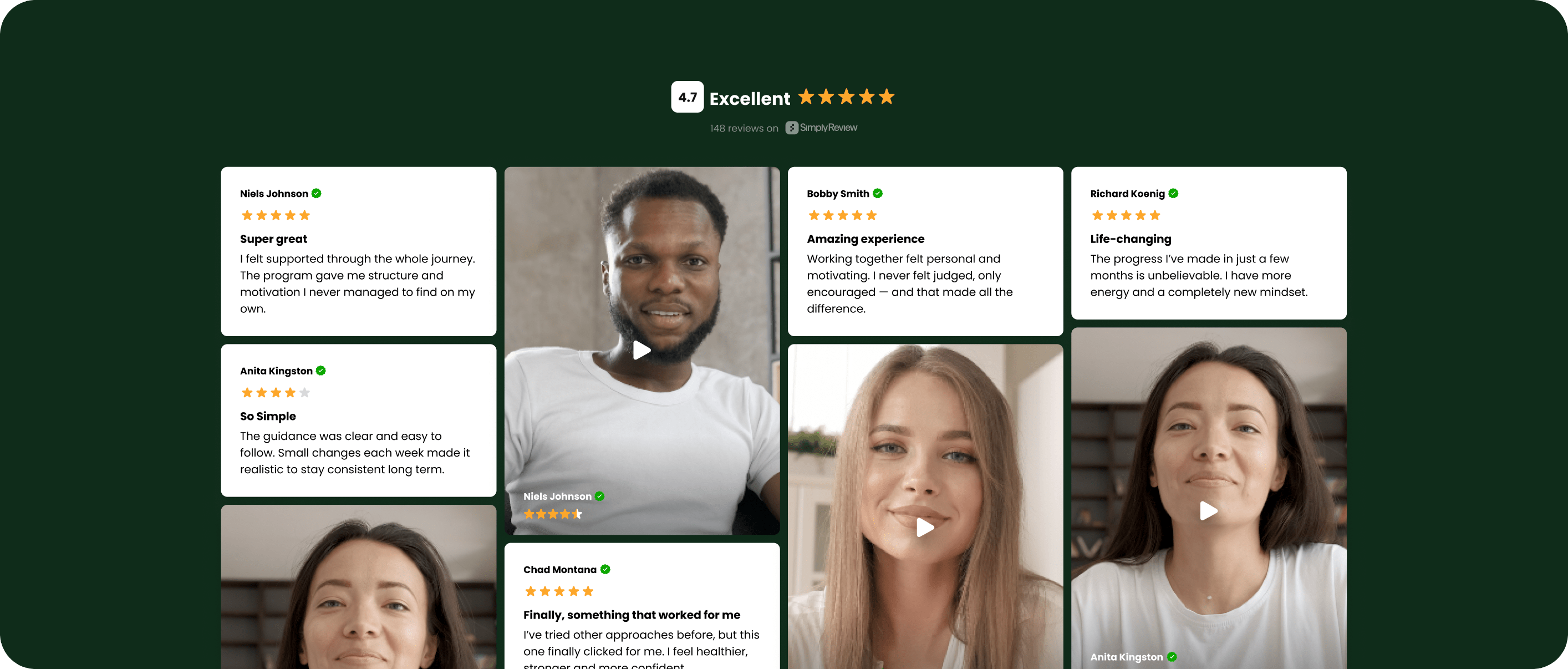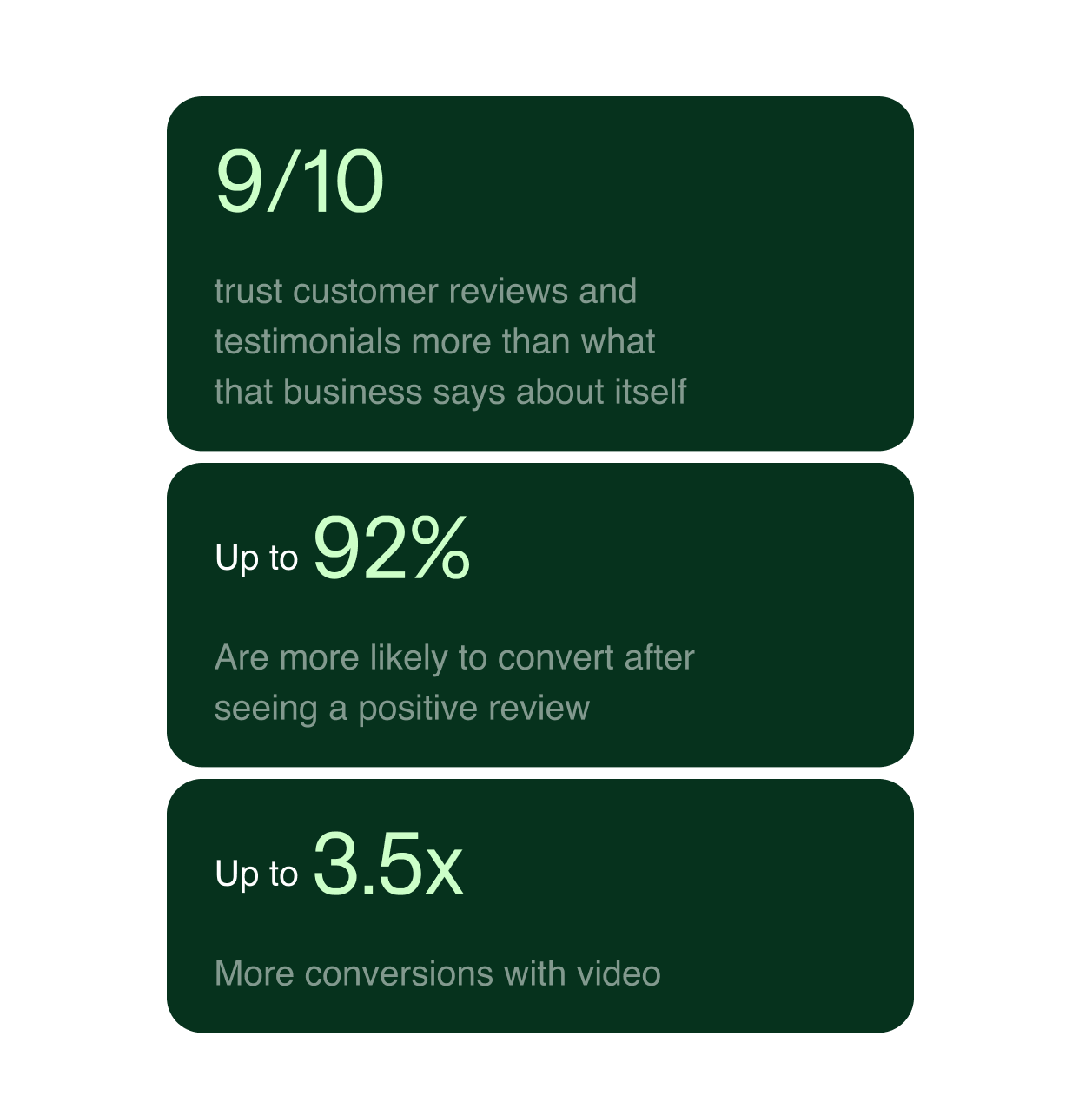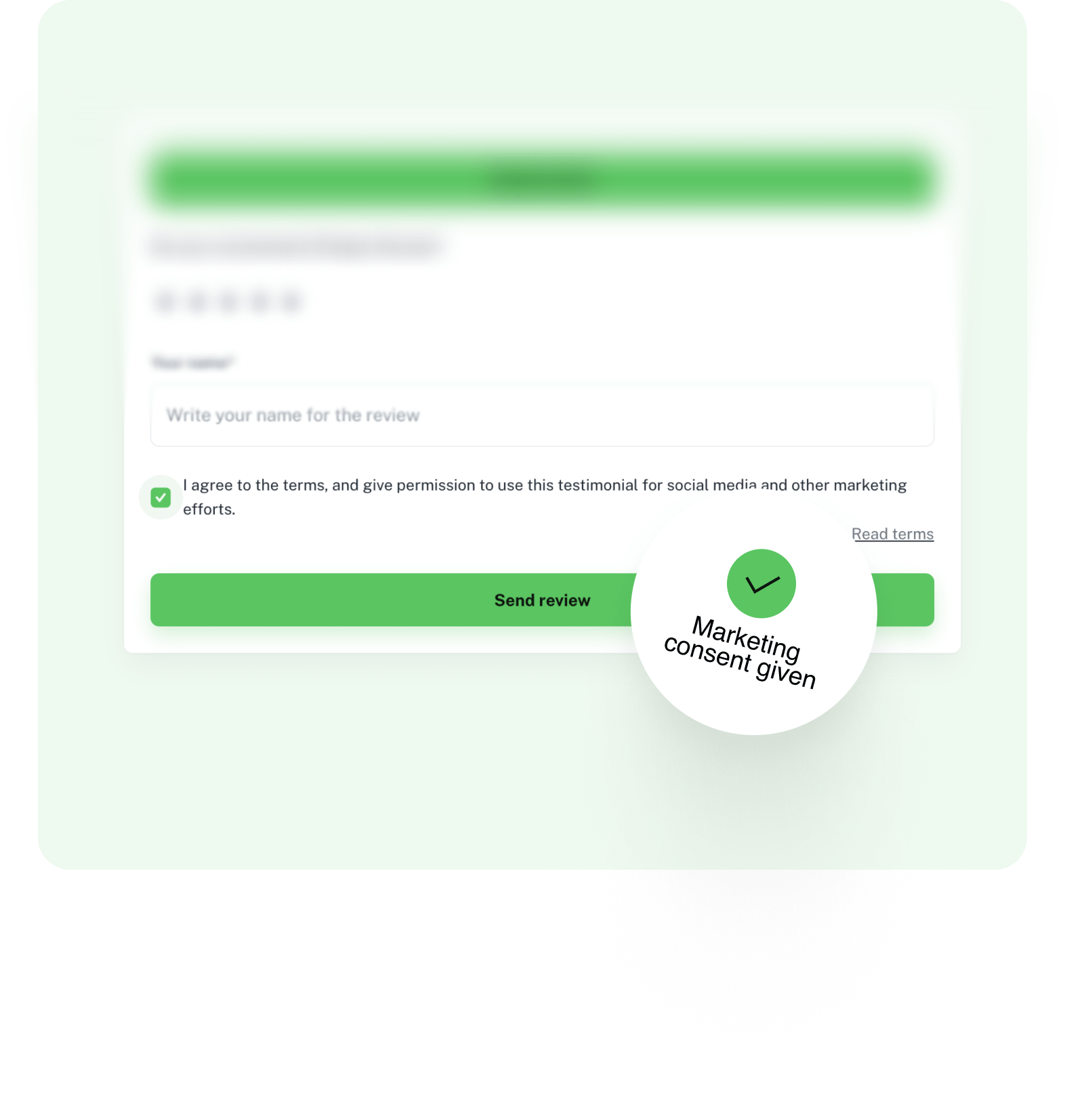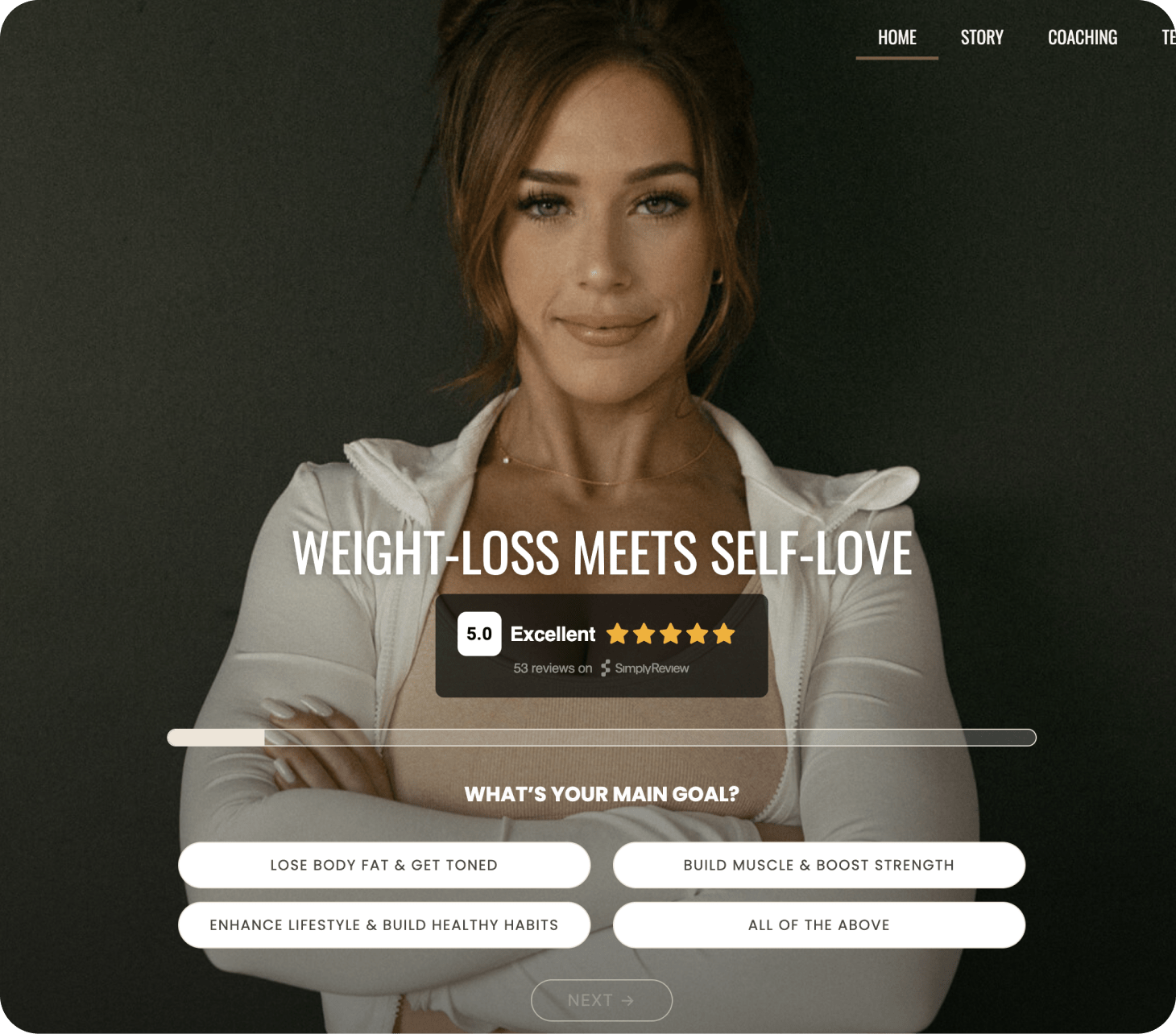The Ultimate Guide to Testimonials: Building trust and boosting conversions

What are testimonials?
Testimonials are powerful statements from satisfied customers about their experience with your product, service, or brand. Think of them as stories told by your customers that highlight how your business solved their problems or improved their situation. In today's digital marketplace, where consumers thoroughly research before making decisions, testimonials serve as essential marketing tools that can dramatically impact your conversion rates.More than just positive feedback, testimonials function as social proof, validating your business's value proposition and building trust with potential customers. When implemented effectively through written reviews, case studies, social media posts, or videos, they increase your trustworthiness and credibility in the eyes of new customers.

Why testimonials matter for your business
The psychology behind testimonials is fascinating. They work through social proof - the concept that people follow the actions and opinions of others. When potential customers see positive feedback from real users, they gain confidence that your business delivers on its promises.
The statistics prove it. The Edelman Trust Barometer shows nearly two-thirds of millennials will try a product based on brand reputation, but without trust, they stop buying. Over 97% of customers read reviews before purchase decisions, highlighting the power of collective opinion.
Research from BigCommerce shows that consumers who interact with reviews are 58% more likely to convert and generate 62% more revenue per visit. Wyzowl found 77% of people who watched a testimonial video were convinced to purchase.
The evidence is clear: testimonials build credibility, establish trust, and drive conversions.
“Research from BigCommerce shows that consumers who interact with reviews are 58% more likely to convert and generate 62% more revenue per visit. Wyzowl found 77% of people who watched a testimonial video were convinced to purchase.”




















Types of testimonials that win customers
There's no one-size-fits-all approach to testimonials. Different formats work better for different businesses and audiences. Let's explore the most effective types you might consider for your marketing strategy.
Written reviews remain the most common format, appearing on websites, review platforms, and social media. They're relatively easy for customers to provide and straightforward for prospects to digest. The most effective written testimonials include the customer's name, position, company (for B2B contexts), and ideally a photo to add authenticity. When customers share specific details about how your product solved their particular problem, these testimonials become even more powerful.
Video testimonials take things up a notch by adding a face and voice to the customer experience. This format creates a more personal connection, allowing viewers to see body language, hear tone of voice, and feel genuine enthusiasm that written reviews sometimes fail to capture. Videos are particularly effective because they're harder to fake and allow for emotional connections that can significantly influence potential customers.
Many businesses overlook the value of social media shoutouts, but when customers praise your business on platforms like Twitter, LinkedIn, or Instagram, these endorsements carry significant weight. The public nature and casual tone of social media testimonials make them feel more authentic than carefully crafted website testimonials. Plus, they often reach wider audiences, including people who already follow your clients.
For complex B2B products or services, case study testimonials offer tremendous value. Rather than providing simple praise, they walk through the entire customer journey, detailing the specific challenge, your solution, and the measurable results achieved. Buyers involved in significant purchasing decisions appreciate the depth and specificity case studies provide.
Some businesses find success with interview-style testimonials that take a Q&A format. These provide structured insights into the customer experience and often reveal benefits you might not have thought to highlight. They work particularly well when addressing common objections or demonstrating expertise in specific areas.
Finally, online peer reviews on platforms like Google, Yelp, G2, or Capterra offer valuable third-party validation. These testimonials carry exceptional weight because they appear on independent sites that prospective customers already trust. Positive ratings on these platforms can significantly impact your local search visibility and industry credibility.
How SimplyReviews helps you capture powerful testimonials
SimplyReview is an all-in-one solution to collect, manage and display testimonials effortlessly. The platform automates requests, reaching customers at the right time for positive feedback.You can collect testimonials through email, SMS, QR codes or direct links, while customizable templates save time and keep your brand consistent.
The analytics dashboard highlights trends, measures sentiment and tracks performance, helping you improve with real customer insights.
Showcase reviews with responsive website widgets and share them across social media for maximum impact.
With built-in consent management, SimplyReview ensures testimonials are always collected ethically and legally, giving you peace of mind while turning customer feedback into powerful marketing.

Creating effective testimonials that convert
The quality of your testimonials matters as much as their quantity. When requesting feedback from customers, avoid vague questions like "Can you give us a testimonial?" Instead, guide them with specific questions that elicit meaningful responses about the problems they faced, how your solution helped, and the measurable results they achieved.
Many marketers find success using the STAR method to structure testimonials: Situation (the challenge the customer faced), Task (what they needed to accomplish), Action (how they used your product or service), and Result (the tangible outcomes they experienced). This approach creates a compelling narrative that potential customers can relate to.
Focus on benefits rather than features in your testimonials. Rather than highlighting what your product does, emphasize how it improves your customers' lives or businesses. For instance, instead of mentioning an "automated reporting feature," a more powerful testimonial would describe how that feature "saves 10 hours every week, allowing for focus on strategic initiatives that have grown revenue significantly."
Requesting testimonials: timing and approach
Timing is everything when asking for testimonials. The ideal moment is when customer satisfaction peaks, such as after a successful project completion, following positive feedback, or after resolving an issue exceptionally well. At these moments, clients are most likely to provide enthusiastic, detailed testimonials that showcase your value.
Always respect your clients' time by making the testimonial process as simple as possible. Provide clear guidelines and specific questions, offer multiple formats like written, video, or audio submissions, and make the submission process straightforward with user-friendly forms or recording tools. Some businesses even draft testimonials for client approval, which can significantly increase participation rates.
Don't forget to show genuine appreciation for customers who provide testimonials. A personalized thank-you message, social media recognition, or small tokens of gratitude like discount codes for future purchases can go a long way in maintaining strong relationships with your best advocates.
Legal considerations you can't ignore
Before publishing any testimonial, obtaining explicit permission from the customer is essential. This applies even if they've provided positive feedback through private communications. The Federal Trade Commission (FTC) has specific guidelines regarding endorsements and testimonials in advertising that all businesses must follow.
Testimonials must always be truthful and not misleading. The FTC prohibits "unfair or deceptive acts or practices in or affecting commerce," which means you should never edit testimonials to alter their meaning, make claims that cannot be substantiated, or fabricate testimonials. If the results described aren't typical, you should include an appropriate disclaimer.
Customer privacy deserves the utmost respect. Always get written consent before publishing identifying information, offer anonymity options for those in sensitive industries, be transparent about how testimonials will be used, and honor requests to remove testimonials if circumstances change.
This is exactly why SimplyReview builds consent directly into the review process - when a customer shares a testimonial, they automatically give permission for it to be used in your marketing. That way, you stay compliant without chasing down paperwork or worrying about gray areas.

Displaying testimonials for maximum impact
Strategic placement of testimonials can greatly enhance their effectiveness. Feature them on your homepage for instant credibility, near pricing to reduce hesitation, on product pages to highlight benefits, and on landing pages to boost conversions. Many businesses also add dedicated testimonial pages for deeper browsing.
Presentation matters too. With SimplyReview, your testimonials always look polished and authentic thanks to our beautifully designed widgets that fit seamlessly into any website. Video testimonials can also be downloaded for reuse in your marketing, giving you ready-to-go content for social media, email, or ads.
Don’t limit testimonials to your website. Share them on social media, in email campaigns, sales presentations, proposals, print materials and even paid ads. A multi-channel approach maximizes the value of every testimonial.
Conclusion: Harnessing the power of customer testimonials
Testimonials are far more than just nice compliments. They function as powerful marketing tools that build trust, overcome objections, and drive conversions. By collecting diverse, authentic testimonials with tools like SimplyReviews and strategically incorporating them throughout your marketing, you can leverage the voice of satisfied customers to attract new business.
The most effective testimonials tell a story, highlight specific benefits, and come from customers your target audience can relate to. When implemented thoughtfully, testimonials become one of your most valuable marketing assets, providing social proof that builds the confidence potential customers need to choose your business over competitors.
Start implementing these testimonial strategies today with the help of SimplyReview, and watch as customer voices transform into your most persuasive marketing advocates.
Questions? We've got answers!
The most effective way to use customer testimonials is to place them at critical decision points in your marketing funnel - such as near pricing sections, checkout pages, and product descriptions. Highlighting authentic customer stories at these points builds trust and reduces hesitation, leading to higher conversion rates. Platforms like SimplyReview make it easy to collect and display testimonials strategically for maximum impact.
Video testimonials are often the most persuasive because they showcase authentic voices, facial expressions, and emotions that text alone can’t capture. For B2B or high-value services, detailed case study testimonials work well, as they provide measurable results and specific use cases. The most effective strategy is to combine different testimonial formats - written, video, social media, and case studies - to appeal to various customer preferences.
The best time to request a testimonial is right after a peak moment of satisfaction - for example, when a project is successfully completed, after a positive customer support interaction, or when a client has just praised your product or service. At these moments, customers are more likely to provide enthusiastic, detailed testimonials that resonate with future prospects.
To stay GDPR compliant, businesses must obtain explicit consent before publishing any testimonial that includes personal information such as names, photos, or videos. This means customers should clearly agree to how and where their testimonial will be used. A tool like SimplyReview simplifies this by building consent management directly into the collection process, so you’re protected from compliance issues while gathering authentic feedback.
The best platforms are those that combine ease of use, automation, and compliance. SimplyReview is built with European businesses in mind, offering GDPR-ready consent management, multiple collection methods (email, SMS, QR codes, direct links), and analytics dashboards to track testimonial performance. Other tools like Trustmary or Senja focus on analytics or social media integrations, but SimplyReview provides an all-in-one solution for collecting, managing, and showcasing testimonials effectively.
To maximize the impact of testimonials, businesses should strategically place them where potential customers make key decisions - such as the homepage, product or service pages, and near checkout or pricing sections. Using clean formatting, customer photos, and highlighted key phrases makes testimonials more persuasive. Multi-channel sharing also increases effectiveness: display them on your website, repurpose them for social media, include them in sales presentations, and use them in email campaigns. Tools like SimplyReview provide responsive testimonial widgets that ensure testimonials always look professional across devices.
Turn reviews into revenue with powerful social proof


